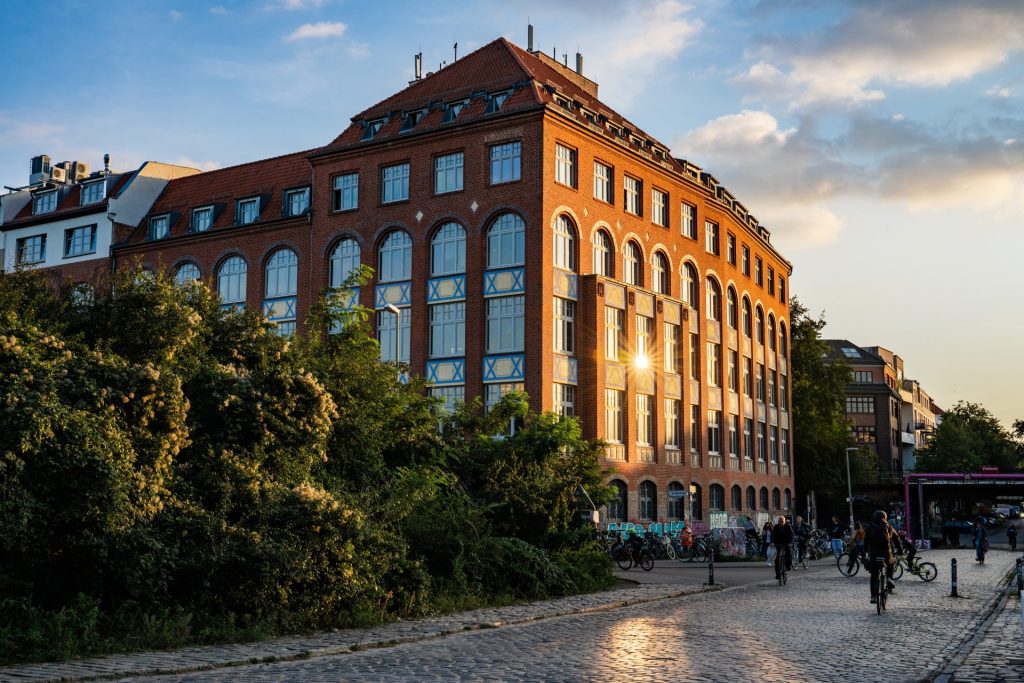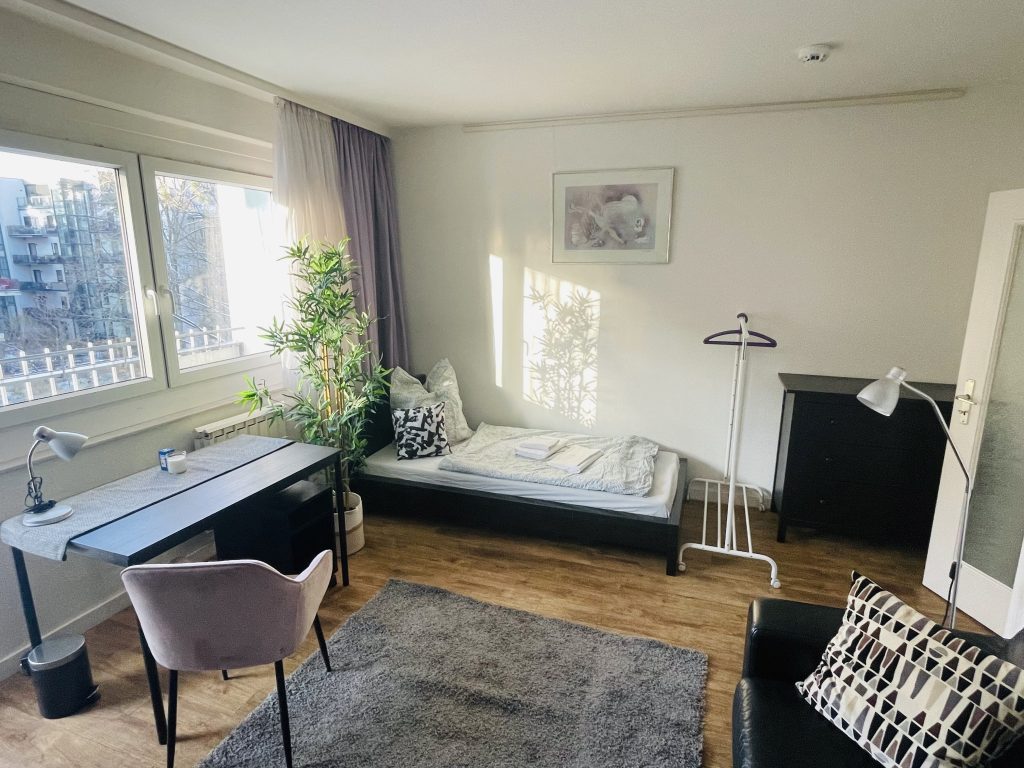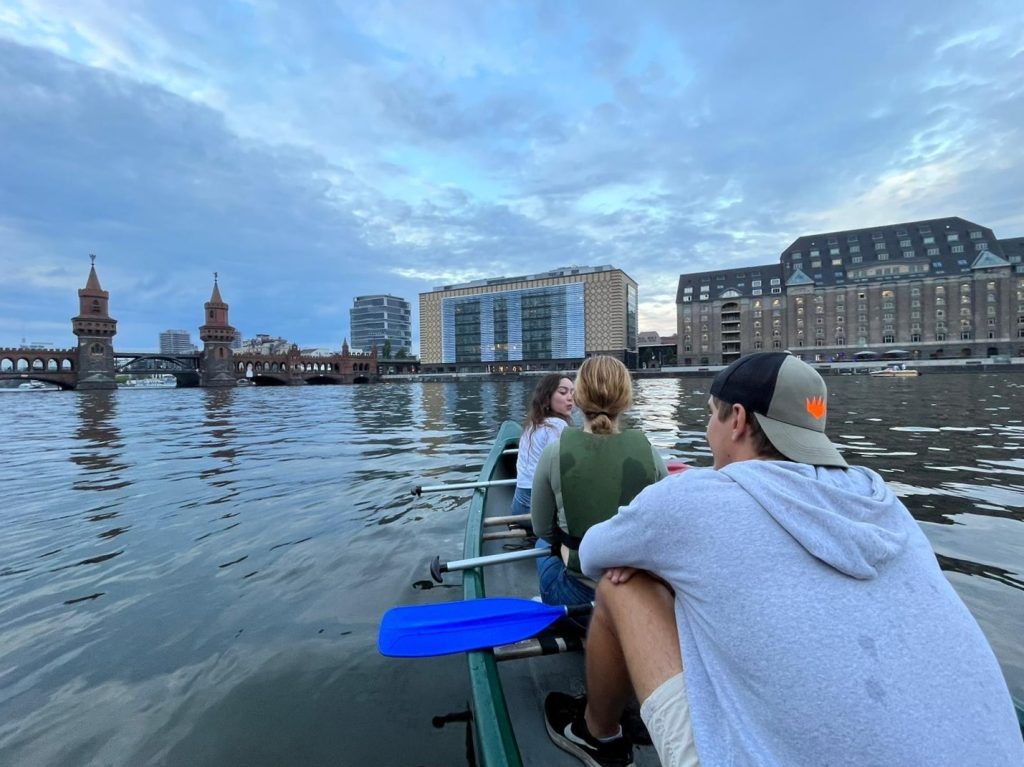Understand the city
Berlin is very big and the neighbourhoods are very different and diverse from each other. Once you can navigate the city, everything makes much more sense and you understand the space better.
Student life


Our students will study amidst a vibrant innovation ecosystem, made up of renowned companies, startups, and other educational
This ecosystem not only exposes them to professionals from various fields but also facilitates connections with peers from other institutions, helping our students to build their own professional and personal networks for their time in Berlin and for life after graduation.

Forward College has partnered with multiple student residences in Berlin, providing diverse options to suit individual preferences for neighborhoods, pricing, amenities, and living arrangements:

Berlin has a world-famous nightlife that attracts around three million people annually but beyond that it’s a great city for galleries and museums, to go for walks in the parks, or just to explore by bike or the extensive public transport system.
Let’s take a look at some of the costs you may have in your third year studying at Forward’s Berlin campus.
| Activities | Costs per week | Cost per month | Cost per academic year (52 weeks) |
|---|---|---|---|
| Student home* | From €137 to €300 | From €550 to €1200 | From €7,150 to €15,600 |
| Private health insurance | €30 | €120 | €1,560 |
| Public transport pass | €12.25 | €49 | €637 |
| Groceries | From €50 to €75 | From €200 to €300 | From €2,600 to €3,900 |
| Mobile Phone Plan | €2.50 | €10 | €130 |
| Leisure activities and daily expenses** | From €25 to €50 | From €100 to €200 | From €1,300 to €2,600 |
| Activity | Costs |
|---|---|
| Meal in a average restaurant | €18 |
| Take away in a bakery (lunch menus, sandwiches…) | €10 |
| Coffee | €2.50 |
| Cinema ticket | €10 |
| Nightclub entry | €10 |
| Single metro ticket | €3 |
*Please note that Forward College has no control over the room prices at our partner student residences, and they may be subject to change.
**includes gym, nightlife, cinema and other types of entertainment.
Studying abroad is one of the most important decisions in your life. By deciding to join Forward you will be pushed out of your comfort zones on a number of occasions: you will transition from high school to university, learn autonomy, live away from your family in a new country, be immersed in a multicultural student body so it’s a good idea to get prepared before arriving. Here are a few tips from our students:
Berlin is very big and the neighbourhoods are very different and diverse from each other. Once you can navigate the city, everything makes much more sense and you understand the space better.
Buy your groceries at one of the many weekly markets around the city. Producers from the region sell their fruit and vegetables fresher and cheaper than in the supermarket.
Our favourite is the market on Maybachufer, a 10-minute walking distance from the Learning Centre.
Berlin is the world capital of techno. You won’t be able to avoid going to at least one or two techno parties while you are here – go into it with an open mind and you’ll have a lot of fun!
Berlin has many universities – the city is full of teenagers and young adults, make friends and socialise to get the best experience.
This will be your third year, by which time you will be a pro at packing well to deal with different eventualities.
Spätis are small kiosks that are open around the clock and offer everything you need in terms of drinks, snacks, and essentials. There are about 1,200 Spätis in Berlin, but soon you’ll have your favourite Späti Guy where you get your Mate-drink and sit on the benches in front of it.
The summer in Berlin is beautiful, but the winter is very cold – so you should dress well and warmly. Layers on the body, and thick socks with good footwear are the key.
German is a very difficult language to learn if you didn’t grow up speaking a Germanic language, but don’t worry. Berlin is a super international city – in most cafés the baristas only speak English, as they are international students themselves!
You can find fresh produce, snacks and desserts in the Turkish grocery shops that are everywhere in the city.